Notes from a hearing on a lawsuit regarding residency status for same-sex couples of foreigners in Japan
I came to the court again to listen to the case regarding residence status of a transnational same-sex couple in Japan (the parties involved are Japanese national Kang Ping and American national Andrew).
This time, only the two plaintiffs spoke, and the judge asked the plaintiffs to submit certain materials and set two trial schedules in May and July. The prosecution trial ended that day. There were many more people this time than last time, almost filling up the seats for the public, and the whole audience applauded after the two plaintiffs spoke. It is said that the judge's attitude changed after seeing so many people and the media, and even applauding. It was in a relatively small court before, and it was arranged in a relatively large court next time.
At the subsequent report meeting, a teacher from the lawyer team emphasized that the so-called court, in principle, should implement "oralism", that is, seek solutions to problems through on-site oral negotiations. However, in current civil lawsuits, especially lawsuits against the state, it is normal to violate this principle. Generally, it ends quickly. In the worst case, it ends without you even having a chance to speak, and then a judgment is made and the case is closed after one or two months. According to this lawyer, this time the client and the lawyer team were able to speak well, and the court also set two trial schedules in the High Court, proving that the court still attaches great importance to this case.
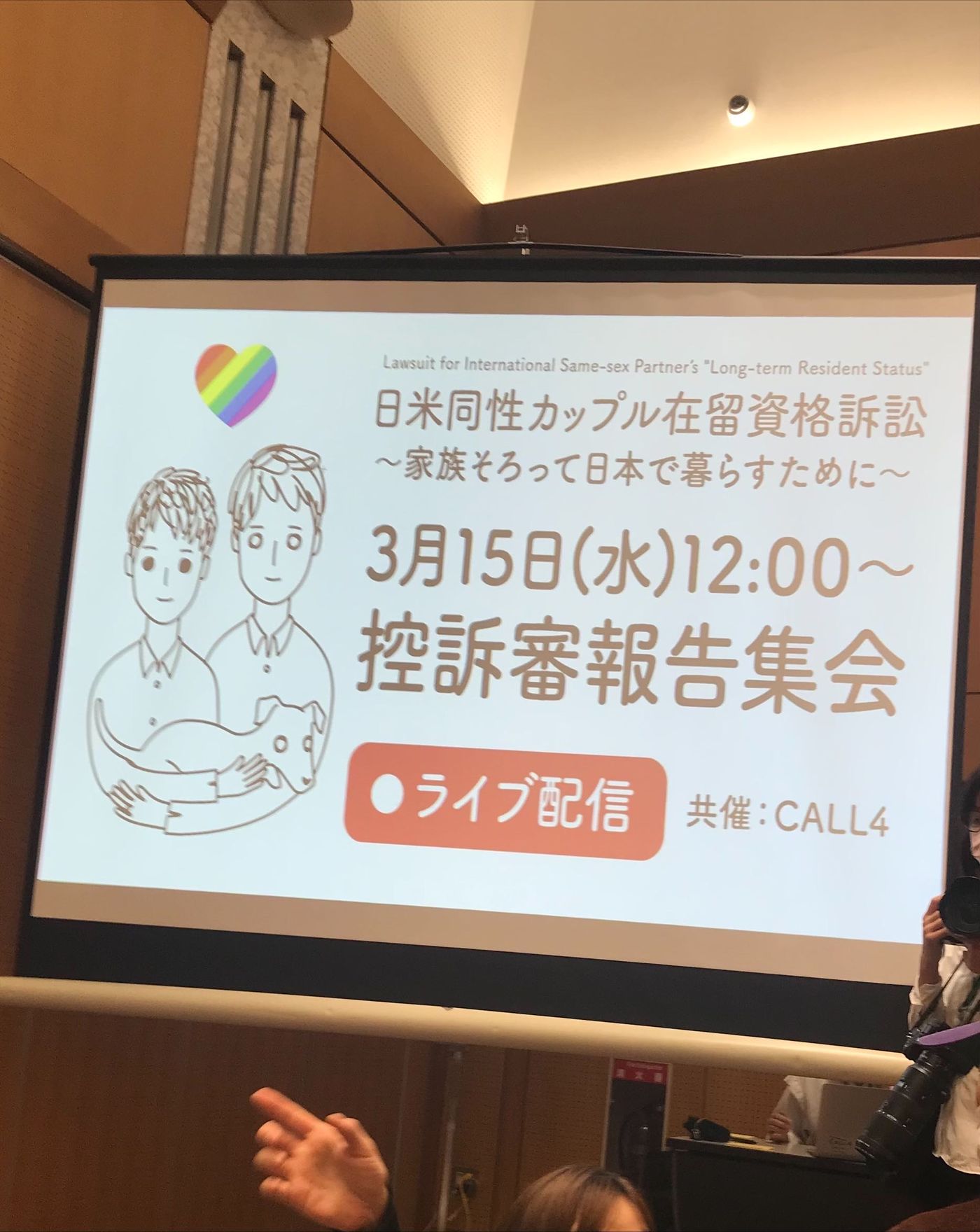
I am a layman in the law and do not understand the rules of the court, but I can't help but question, this lawsuit started in 2019, and it took until now for the court to listen to people and show a more serious attitude? And if the next two trials did not attract too much public attention, would the court ignore the case and close it? How many parties who have suffered from injustice like these two have not had enough resources to persist, or because of various unspeakable reasons, they are in a "bad situation" and their cases are dropped? (Last time I attended a trial, I met a friend who participated in another case in the court that day about intentional arson to injure homeless people. That case was quickly closed and dropped, and the homeless people continued to live in fear).
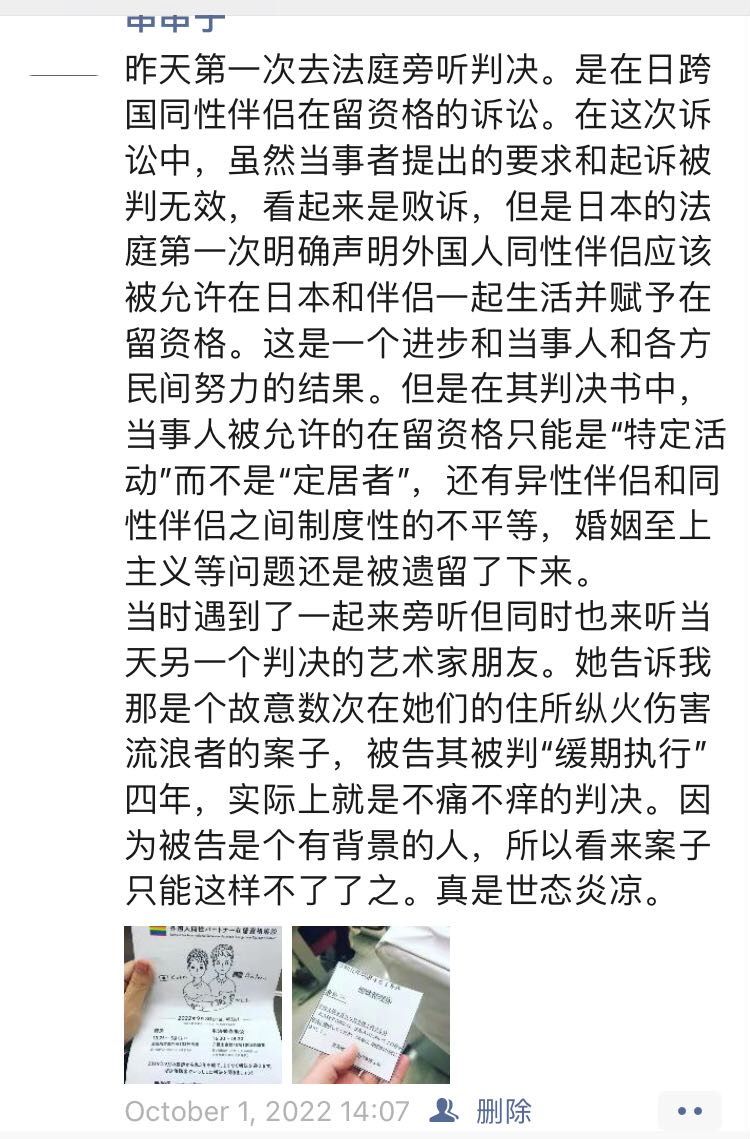
Why can't the courts listen to people and deal with problems in a timely manner? If you think about it carefully, the legal system that claims to be equal and fair actually has various ways to maintain a set of social "unwritten rules" .
(*Article 14 of the Japanese Constitution emphasizes that all citizens are equal and should not be discriminated against. However, foreigners are not "citizens" so the issue of residence status, including refugees and asylums, is a gray area that is not protected by the Constitution, and the rules can be said to be arbitrarily determined by bureaucrats.)
I remember a friend exclaiming at a book club: " It turns out that national borders themselves are discriminatory! " In theory, everyone should have the right to move freely and live with the people they like in the place they want to live. But this is not the case. The current social system that controls human life creates a set of rules by constructing a difference-making mechanism. This set of rules divides people into different levels based on their place of birth, sexual orientation, gender, skin color, income, physical and mental health, etc. , and relies on the token of " legality and rationality " to allow discrimination to infiltrate and spread.
Isn't this how Japan's resident status is divided? Japan's resident status is divided into two categories. One is based on the content of activities in Japan , such as work, study abroad, humanities and technology, etc., which are usually short-term and have a high risk of being rejected for renewal. The other is based on status , such as permanent residents and Japanese opposite-sex spouses and children , which are usually long-term and stable. In this case, although the court recognized that Kang Ping and Andrew should live together, the Immigration Bureau still issued a resident status called " Special Activities " based on the content of activities in Japan (this visa counts the relationship between the two as the content of activities in Japan, the visa is only one year and cannot be used for work ). There have been cases in the past where foreign same-sex couples have lived together for more than ten years but were considered "not stable" and were not given "settler" visas. It can be said that this rule for the classification of resident status is to determine the so-called " stability " based on the type of intimate relationship (of course, in other cases, it will also be based on nationality, income, gender and other factors), so as to determine who is qualified to live here and how to live, and who is not even qualified to live here. So isn't the unspoken rule here discrimination in capital letters?
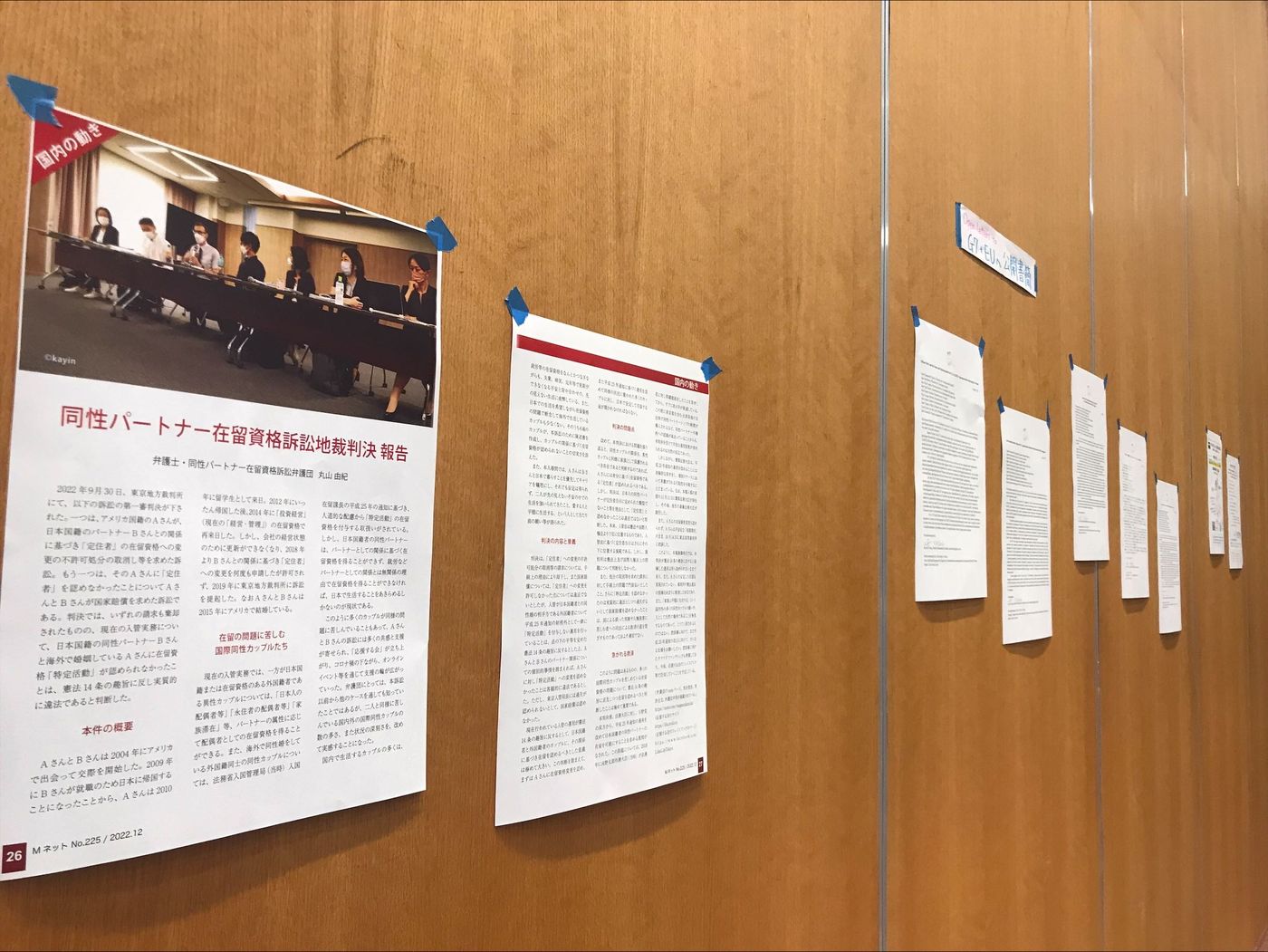
Such discrimination permeates the residence system, and it is easy to understand the role of the courts that keep delaying the resolution of the matter. If there is no precedent for discrimination, then it is legal. Most people are silent in the face of "legal and reasonable". Most vested interests choose not to speak out. Those who are not vested interests but can still muddle through are too lazy to speak out. Those who can't make it speak out, but their voices are either ignored or they are delayed until they can no longer speak out. Friends who can read this, do you also think this matter is hateful?
Andrew said that this case made him think over and over again about what " equality " is. He said that he realized that equality does not mean that everyone is the same. It is true equality when people can achieve equality even if they are different. I really agree with this statement. In the face of a huge system that constantly produces differences and discrimination, perhaps at this stage the only antidote is to keep "speaking up", questioning what equality is, and emphasizing that all kinds of "different" people must be equal. In fact, this case itself is not only about the problem of foreign sexual minorities in Japan, it can involve more fundamental and even universal social problems. I guess you will have an idea of what your country's system is like and what you have to do.
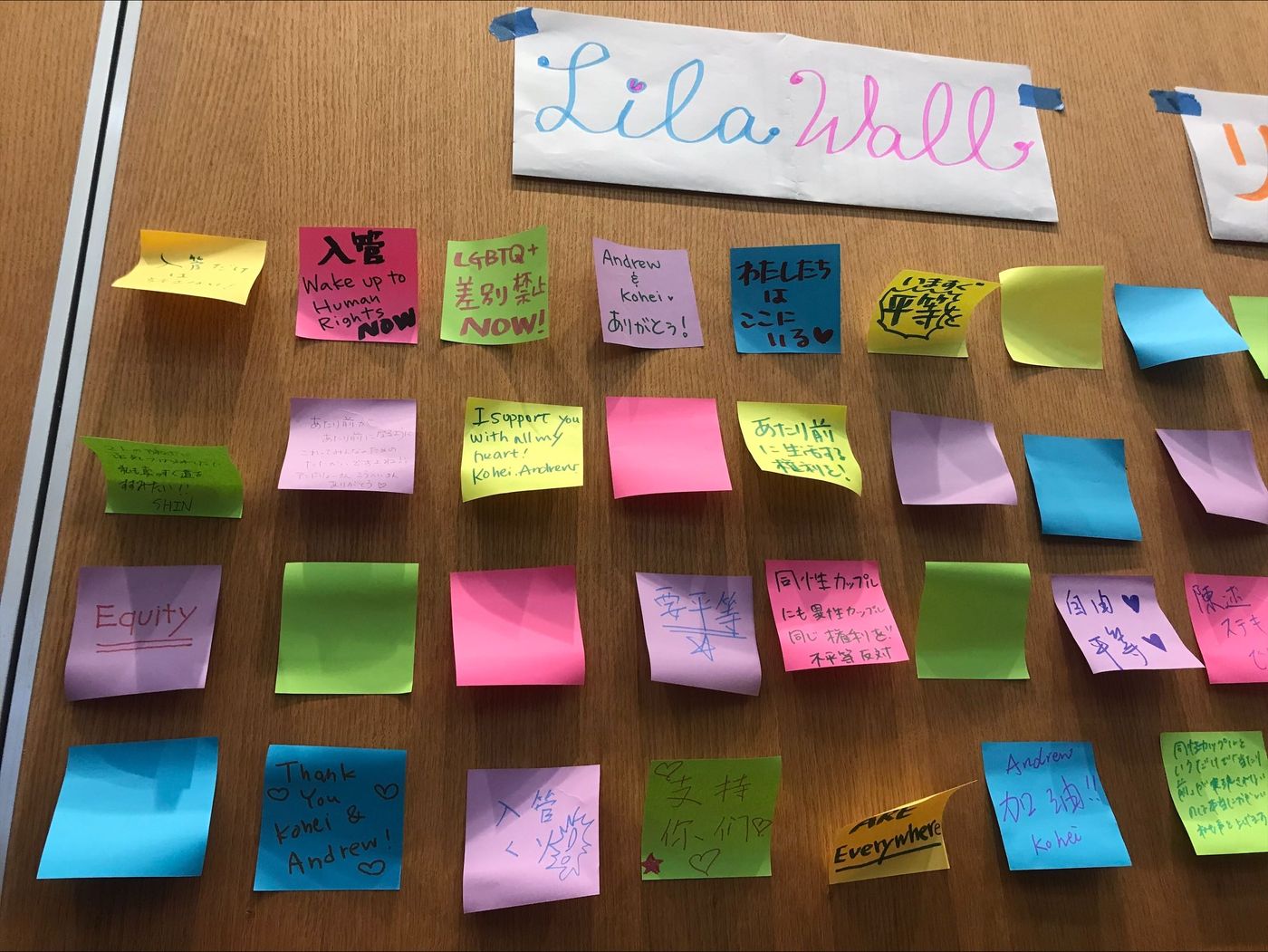
Finally, we welcome friends in Tokyo who care about discrimination issues (including but not limited to discrimination based on sex or nationality) to come to the court and put pressure on the court by filling up every court session! We also welcome everyone to spread the word, and we also welcome media reporters to collect and disseminate the information! Thank you
--Next Return Date--
May 31, 2023 (Wednesday)
3:00 p.m.
Tokyo High Court Court No. 101
Capacity 100!みんな来てね.
--Next court date---
May 31 (Wed), 3pm-
Tokyo High Court rm 101
Be there!
Send money to help (Call4経)!
https://www.call4.jp/info.php?type=items&id=I0000111
https://www.facebook.com/LilasLifeTokyo
Finally, here is a YouTube video of the complaint trial report meeting (valid for 3 months): Japanese-American Same-Sex Couple Residence Status Litigation Complaint Trial Report Meeting Akaibu Animation (Limited Release Until June 15, 2023)
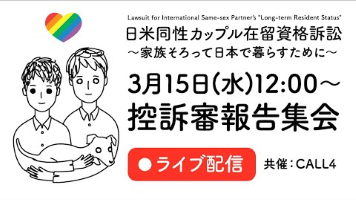
Like my work? Don't forget to support and clap, let me know that you are with me on the road of creation. Keep this enthusiasm together!
